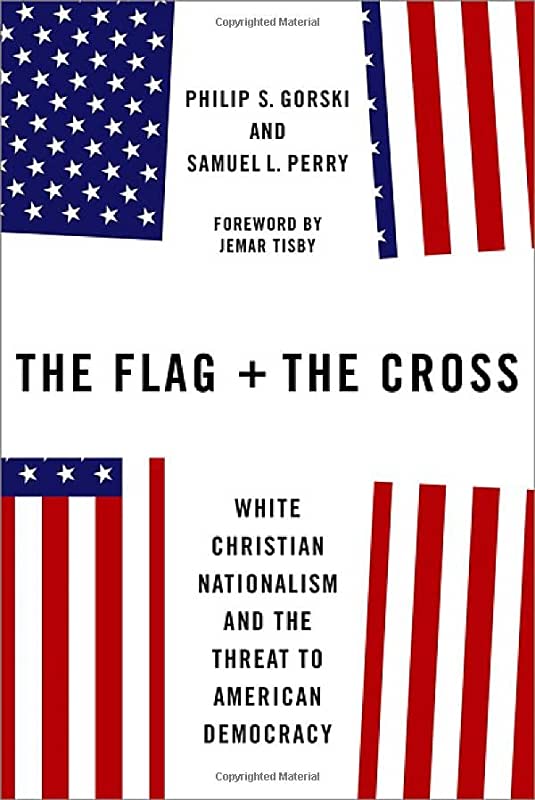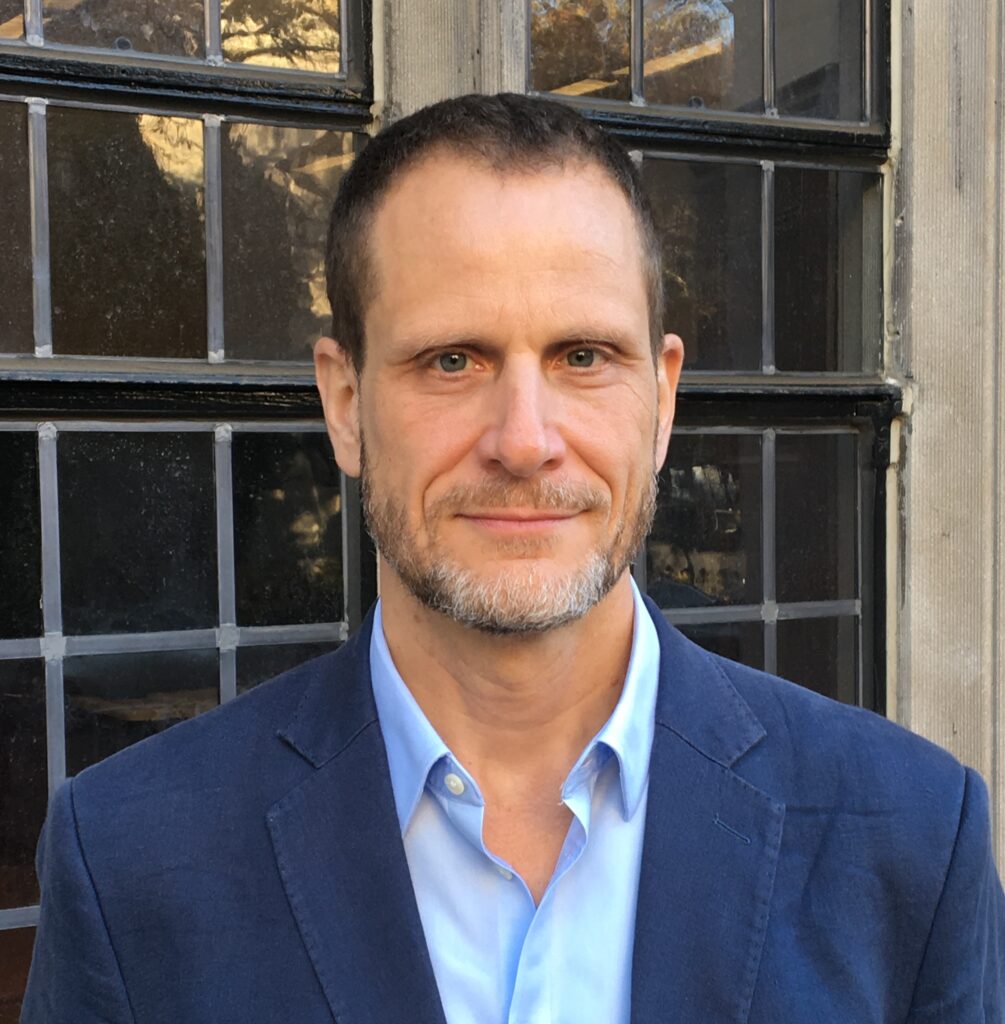Please register to join us on March 23 at 4pm for an event featuring Phil Gorski, Frederick and Laura Goff Professor of Sociology and Religious Studies at Yale University, discussing his new book (co-authored with Samuel Perry), The Flag and the Cross: White Christian Nationalism and the Threat to Democracy. The respondent will be David Hollinger, Preston Hotchkis Professor Emeritus of History at UC Berkeley. Carolyn Chen, Co-Director of the Berkeley Center for the Study of Religion and Professor of Ethnic Studies, will moderate.
Jointly sponsored by the Berkeley Center for the Study of Religion (BCSR) and the Center for Right-Wing Studies. This event will be presented in-person at Social Science Matrix (820 Social Sciences Building) and streamed online via Zoom. Registrants will receive a Zoom link prior to the event.
This event is part of the BCSR Public Forum on Race, Religion, Democracy and the American Dream, and is generously funded by the Henry Luce Foundation.
About the Speaker
Philip S. Gorski, Frederick and Laura Goff Professor of Sociology and Religious Studies at Yale University, is a comparative-historical sociologist with strong interests in theory and methods and in modern and early modern Europe. His empirical work focuses on topics such as state-formation, nationalism, revolution, economic development and secularization with particular attention to the interaction of religion and politics. His other current interests include the philosophy and methodology of the social sciences and the nature and role of rationality in social life. Among his recent publications are The Disciplinary Revolution: Calvinism and the Growth of State Power in Early Modern Europe (Chicago, 2003); Max Weber’s Economy and Society: A Critical Companion (Stanford, 2004); and “The Poverty of Deductivism: A Constructive Realist Model of Sociological Explanation,” Sociological Methodology, 2004. Gorski is Co-Director (with Julia Adams) of Yale’s Center for Comparative Research (CCR), and co-runs the Religion and Politics Colloquium at the Yale MacMillan Center.
About the Book
 Most Americans were shocked by the violence they witnessed at the nation’s Capital on January 6th, 2021. And many were bewildered by the images displayed by the insurrectionists: a wooden cross and wooden gallows; “Jesus saves” and “Don’t Tread on Me;” Christian flags and Confederate Flags; even a prayer in Jesus’ name after storming the Senate chamber. Where some saw a confusing jumble, Philip S. Gorski and Samuel L. Perry saw a familiar ideology: white Christian nationalism.
Most Americans were shocked by the violence they witnessed at the nation’s Capital on January 6th, 2021. And many were bewildered by the images displayed by the insurrectionists: a wooden cross and wooden gallows; “Jesus saves” and “Don’t Tread on Me;” Christian flags and Confederate Flags; even a prayer in Jesus’ name after storming the Senate chamber. Where some saw a confusing jumble, Philip S. Gorski and Samuel L. Perry saw a familiar ideology: white Christian nationalism.
In this short primer, Gorski and Perry explain what white Christian nationalism is and is not; when it first emerged and how it has changed; where it’s headed and why it threatens democracy. Tracing the development of this ideology over the course of three centuries—and especially its influence over the last three decades—they show how, throughout American history, white Christian nationalism has animated the oppression, exclusion, and even extermination of minority groups while securing privilege for white Protestants. It enables white Christian Americans to demand “sacrifice” from others in the name of religion and nation, while defending their “rights” in the names of “liberty” and “property.”
White Christian nationalism motivates the anti-democratic, authoritarian, and violent impulses on display in our current political moment. The future of American democracy, Gorski and Perry argue, will depend on whether a broad spectrum of Americans—stretching from democratic socialists to classical liberals—can unite in a popular front to combat the threat to liberal democracy posed by white Christian nationalism.
View Map